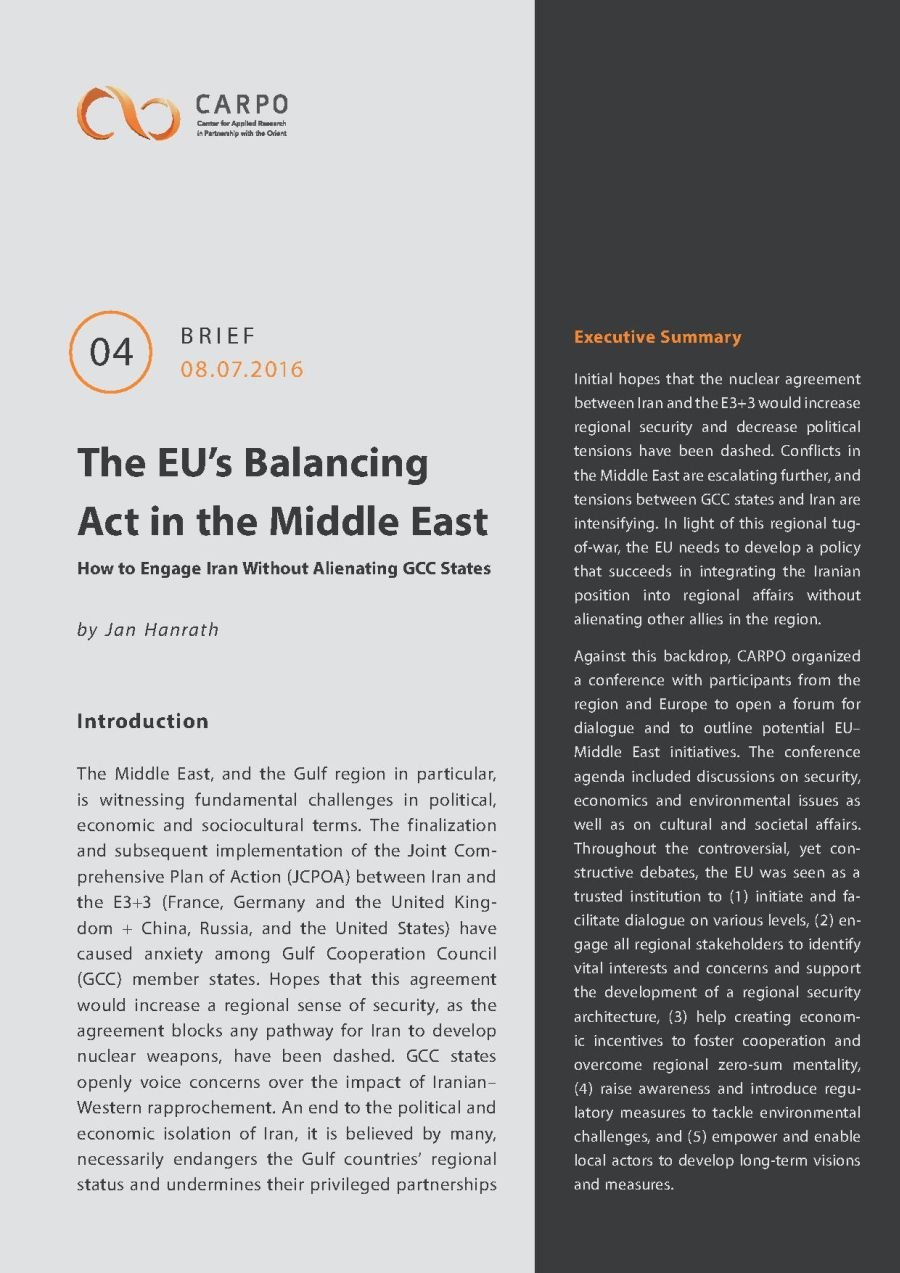
Knowledge in Dialogue. The Role of Academic Exchange in Mitigating Conflict between Iran and Saudi Arabia
by Jan Hanrath
The sixth meeting of CARPO and the EastWest Institute’s ‘Iran-Saudi Dialogue Initiative’ dealt with knowledge production and knowledge dialogue in context of the highly conflictual relationship between Iran and Saudi Arabia and explored the potential of academic exchanges and scientific cooperation in defusing such tensions. The workshop brought together academics, representatives of think tanks and security analysts from Iran and Saudi Arabia as well as international experts. The participants discussed general conditions and approaches of academic dialogues, as well as concrete steps that can be envisioned even in times of heightened conflict. All participants agreed that an increase of knowledge on its own does not automatically lead to more understanding. Different forms of knowledge need to be understood and applied, and existing gaps between the various forms bridged. Only in doing so academic dialogue can live up to its potential as bridge-builder. CARPO/EWI Brief 11 takes up the discussions of the workshop and presents policy recommendations.
view CARPO/EWI Brief
view printer-friendly version



